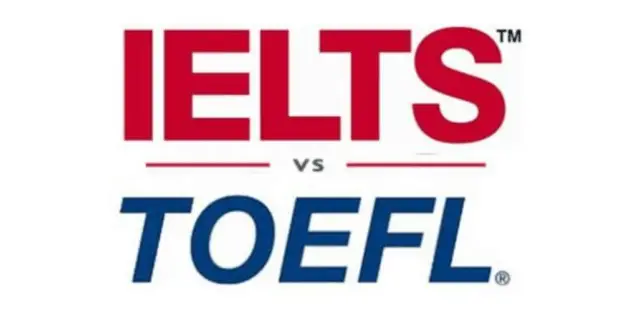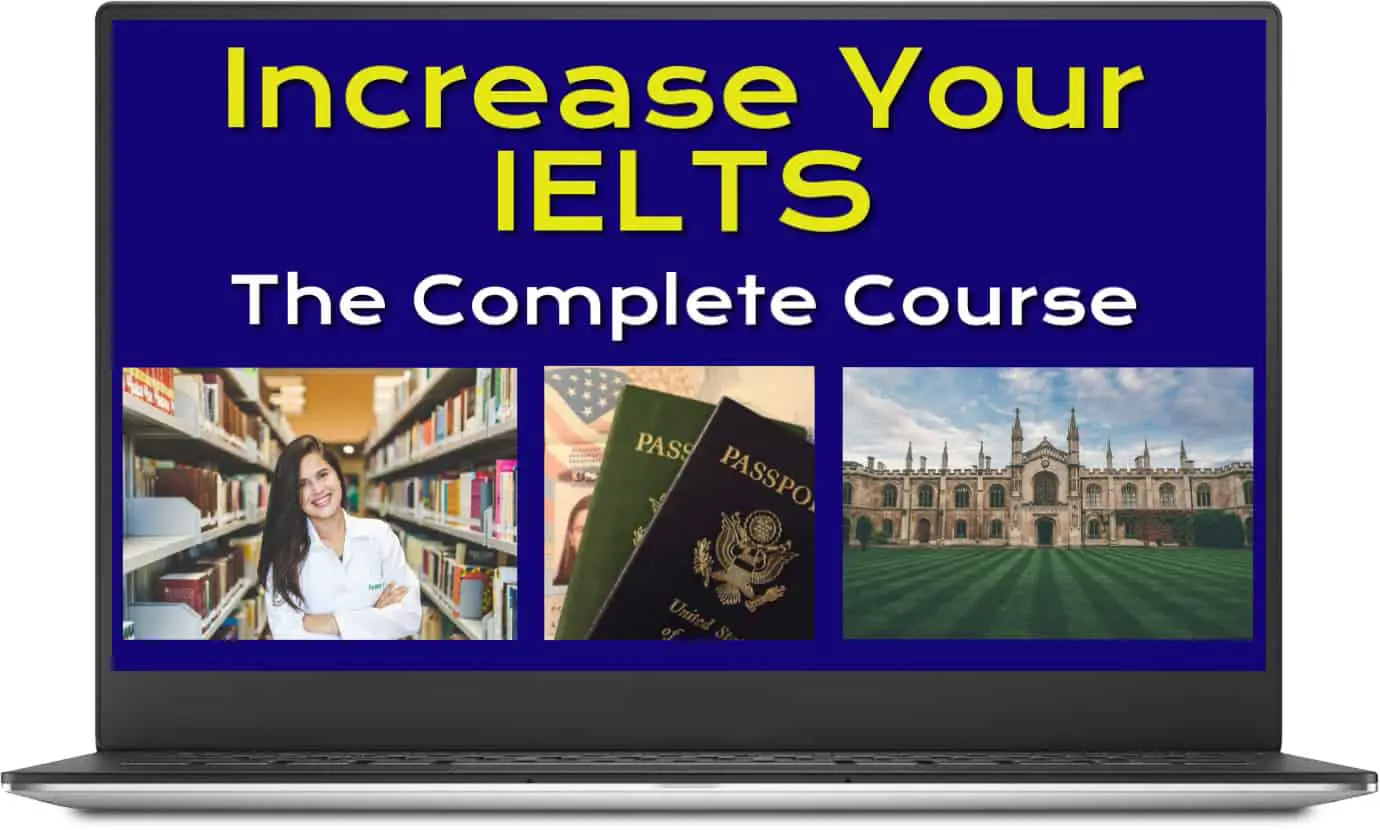A big decision that many people face is whether to take an IELTS or TOEFL as a way of proving their level of English. As a sixth form tutor who advises people on this daily, here is my advice:
Take the IELTS test if you are applying for a UK/European university or visa, unless you are particularly concerned that you cannot perform well in a face to face interview, in which case you can take a TOEFL to avoid this. If working or studying in the US then take a TOEFL.
However, everyone is different and so each person should consider what their strengths and weaknesses are in English and then match them towards the TOEFL or IELTS depending on which is likely to give them the best result. To do this, you need to know what the differences are so that is what we will look at now:
What are the differences between IELTS and TOEFL?
Feature | IELTS | TOEFL |
Owned by | British Council, IDP Australia, Cambridge English | Educational Testing Service, America (ETS) |
More commonly preferred in | Great Britain, Australia, New Zealand, Canada and Europe | USA |
Coverage | 1,200 centres across 140 countries | 45, 000 centres across 150 countries |
Retest policy | Unlimited | As many times as you want but not within 3 days |
Method of delivery | Computer delivered (CD IELTS) or paper based IELTS | Internet based (iBT) or paper based (PBT), home based test also possible |
Types | General (employment and immigration), Academic (studying overseas) | English language ability of non-native speakers wishing to enroll in English-speaking universities. |
Cost in the US | $245 – $255 | $180 – $190 |
Maximum possible score | Band 9 | 120 points |
Test breakdown | Individual band scores for each skill: reading, writing, listening and speaking are equally weighted and averaged to give an overall band score. | 30 points each for reading writing listening and speaking totalled. |
Reading and listening question types | Ten different question types, such as: matching, labeling, gap fill, sentence completion, form completion etc… | Multiple choice only |
Reading text types | General: notices, ads, company handbooks, books, magazines and newspapers. Academic: journals, magazines, books, and newspapers | Academic texts only |
Speaking test | Face to face with examiner | Answer recorded questions on computer |
Writing speed | 400 words in 60 mins | 500 words in 50 mins |
Writing breakdown | Academic: Summarise a chart in 150 words, Write an essay 250 words. General: Write a letter 150 words, write an essay 250 words | Integrated writing task: 150 – 225 words. Independent writing task: 300 words |
Which Is Easier IELTS or TOEFL?
IELTS is easier than TOEFL as regards reading and writing as you have 10 minutes longer and 100 fewer words to write and reading texts are less information dense and complex. As regards listening and reading, TOEFL is easier as questions are multiple choice and you do not have to listen and write simultaneously.
Test Section | IELTS | TOEFL |
Reading | Easier because texts can be from magazines, newspapers, adverts and books | Harder because texts are usually academic in nature and more complex |
Writing | Easier as essay structures can be learnt | Harder as you have to write more in less time. |
Listening | Harder because of the need to listen and write at the same time. | Easier because questions are simply multiple choice. |
Speaking | Harder because the examiner will ask questions to stretch your ability. | Easier because you do not have the pressure of a real life conversation. |
The above table is based on the discussion below and you need to make up your mind whether these factors are important for you or not. You may well disagree with the above table which is fine, it is just a way to get you thinking about it more clearly.
IELTS Listening v TOEFL Listening
If you prefer choosing from a list of answers then TOEFL is for you. You will always have a 25% chance of getting the right answer and you do not have to worry about following the question instructions as thoroughly as you have to in IELTS.
For example, in IELTS you may be asked to write a certain number of words, and if you write too many then you won’t get the mark. So, basically there is more that can go wrong in IELTS listening.
Furthermore, in IELTS you have to listen and write/answer at the same time which makes it a lot more difficult than simply answering a multiple choice question after the recording has finished as you do in TOEFL.
Both tests say that they use a mix of native speaker accents from America, Britain, Australia, New Zealand, and Canada. None of the accents featured will be ‘too thick’ though and are generally very clear.
However, anecdotally, test takers believe that TOEFL is preferable for people who prefer listening to American accents and IELTS is preferable for people who prefer British accents. Having looked at preparation material for both I don’t see that difference to be honest.
Finally, in IELTS you can lose marks for poor spelling which difficulty. So, if you are not good at spelling then you might want to go with TOEFL.
Final verdict: Go with TOEFL if you struggle with listening and writing at the same time.
For help with IELTS listening check out my full guide here.
IELTS Reading v TOEFL Reading
If you prefer choosing from a list of answers then TOEFL is for you. SImilarly to the listening section in IELTS there are a wide variety of question types which test different skills. This means exam technique and familiarity with the question types becomes even more important and provides more scope for mistakes.
On the other hand, as TOEFL only uses academic texts it means they are more dense with information, containing more complicated/specialist vocabulary than IELTS reading texts, especially when compared with IELTS General.
If you don’t like the sound of that then IELTS General may be preferable as the texts, overall, are simpler to read.
Verdict: Choose IELTS if you are not confident in your reading skills but be prepared to practise different question types first.
Check out my IELTS reading guide here for all you need to succeed.
IELTS Speaking v TOEFL Speaking
If you get overly nervous when speaking with native English speakers then you might prefer to do the TOEFL test as you simply do this by recording your voice speaking into a computer programme.
However, if speaking is a strong point for you then the IELTS examiner will gauge your level of English and be able to stretch you to see how good you really are, especially in part 3 of the test when you have a more open discussion with them. This could be really beneficial for you if you need to prove your level of English to an employer.
TOEFL speaking is more like a presentation than a conversation. So choose this if you are okay at speaking without a partner and don’t mind this rather impersonal approach.
Verdict: Take IELTS if you are confident in your speaking skills so you can show off more.
Check out my comprehensive IELTS speaking guide here.
IELTS Writing v TOEFL Writing
In TOEFL writing, you must complete a task that integrates your reading, listening and writing skills to complete an essay that compares a text with a lecture on the same subject.
If that sounds tricky then ‘yes’ it is more complicated than either of the tasks you will get in IELTS. In IELTS General, you will have to write a standard 150 word letter and then a discussion essay.
Although there are different types of IELTS essays the structures for these can be learned fairly easily and the time pressure is not too great so long as you can come up with ideas on the topics provided which some people find difficult.
The only other part of IELTS writing that can cause real difficulties is in task 1 of the Academic version of the test when you are asked to summarise a chart which could come in the form of a: graph, table, pie chart, map, process diagram, or even a combination of these.
If you are not used to analysing and interpreting these then it can be easy to get this very wrong, so you will need to have practised each type of these thoroughly as each type also requires their own specialist sets of vocabulary.
As regards TOEFL writing, there is also an independent writing task following the integrated task which is an opinion essay in which you can really personalise with your own thoughts and ideas which some people find makes it easier as you can write from the heart. You need to write 380-400 words in thirty minutes.
Verdict: Take the IELTS test for an easier time in the writing test.
Check out my full guide for IELTS writing General here and IELTS Academic writing here.
The Reality Of Your Decision
In reality you may not have a choice. Your university, school, or visa may specify which they want you to take in which case you have no choice. Furthermore, if you have a deadline to meet then there might not be test dates available for you, or traveling to a particular IELTS/TOEFL test centre may be too time consuming.
If you do have the luxury of making a genuine choice between the two then reread my points above and see which points are most significant for you which may push you towards one exam or the other.
However, do not fall into the trap of not preparing properly for the test whichever one you do. Both tests are relatively expensive and it is quite easy to ‘fail’, or not get the score that you need, so do yourself a favour and prepare properly by doing past papers and getting specialist help if required.
You might want to check out my IELTS course here if you are in need of help with IELTS, I cover everything here.
Does the USA accept IELTS?
Over 3,420 schools, colleges and universities accept IELTS in the US. Typical requirements are for a band 6.5 for university entrance. Note, each faculty has different requirements, for example Harvard requires a band 8 Academic to study Medicine but only a 6.5 for Arts degrees.
You can find out whether your targeted course accepts IELTS and what the requirement is by checking the IELTS US database here.
TOEFL or IELTS for Europe
The theory is that IELTS is the best choice when applying for European/UK universities and TOEFL is best for US universities because IELTS is mainly British owned and TOEFL wholly American owned. However, in reality most educational institutions nowadays accept either and are fully aware of the two tests.
Of course, always double check with your university, company, or immigration department that they do not specify which one they require just in case.
Recommended IELTS Study Tools
Thank you for reading this article. I always get lots of questions about how else to get a better band score quickly. So, this is what I recommend:
Complete IELTS Course: Of course, my full course ‘INCREASE YOUR IELTS‘ covers everything you need to need to know to pass IELTS, including practice questions, model answers, grammar work, strategies for every possible reading, writing and listening question type, as well as a complete speaking course too, check it out here.
IELTS Essay and Speaking Feedback: To complete full mock tests and get feedback from IELTS examiners on your IELTS essays or speaking tasks then visit: IELTS Feedback and Mock Tests, here.
Improve your grammar fast by using the Grammarly suggestions to improve your writing. Every IELTS students should have this free grammar improving tool.
Improve all-round English skill with EnglishClass101.com. If you have failed IELTS more than once then you probably need to improve your general level of English. Use the free online lessons and vocabulary building tools here and start improving today! HIGHLY RECOMMENDED!





